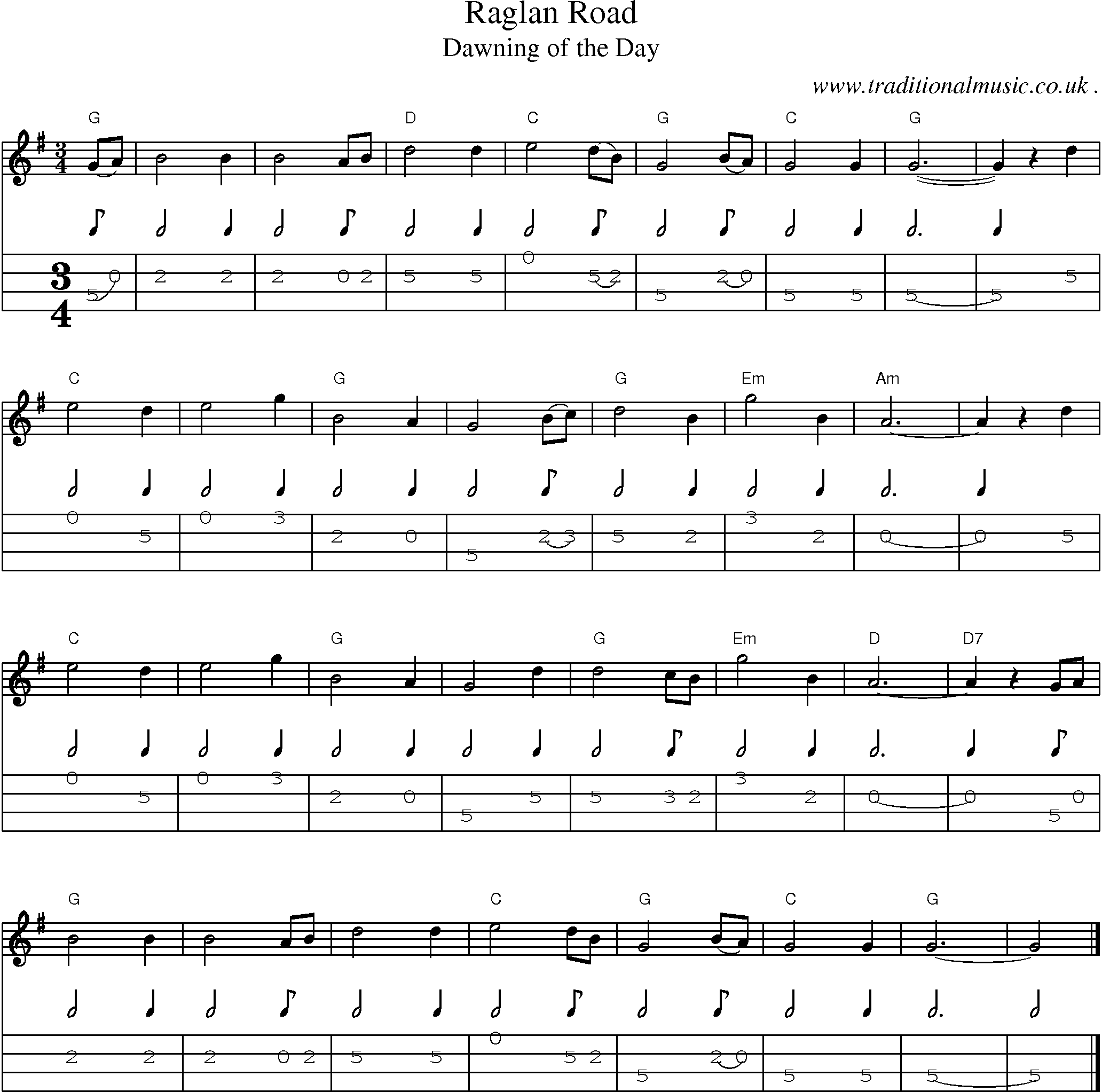A happy Thursday to you friends! Last week I discussed some urges I’ve been having toward composing my own songs—thanks for all the great feedback & encouragement. While I haven’t yet made a foray into this project, the fine poet Mairi Graham directed me to a heartbreakingly lovely example of a poem set to music, & it impressed me so deeply I thought I’d share it here today. By the way, if you are interested in poetry in any way, you really should be reading Mairi Graham’s poems on her Secret Poems from the Times Literary Supplement; they are poems of the first order.
“On Raglan Road” is a poem composed by Irish poet Patrick Kavanagh. The poem itself is a beautiful lyric about lost love that was first published in 1946 as “Dark Haired Miriam Ran Away.” It’s just the sort of purely romantic poem one might aspire to write—clear in its emotion as a mountain stream, but still refracting what’s below the surface—but I’m perhaps too much of a post-modern at heart to compose anything quite so unabashedly & unselfconsciously romantic as this.
At Kavanagh’s urging, “On Raglan Road” was set to music by Luke Kelly, who performed with The Dubliners from the 1960s thru his death in 1984. The tune is that of a traditional Irish air, "The Dawning of the Day" (“Fáinne Geal an Lae” in Gaelic). There are several versions of this setting available, as it has been covered by a number of artists, including Kelly, Roger Daltry (backed by the Chieftains), Sinéad O’Connor, Van Morrison, Billy Bragg, Loreena McKennitt & others. But I was particularly captivated by Mark Knopfler’s version. The backing, with fiddle, bouzouki & uilleann pipes is beautiful, & the whole treatment is understated, which to my mind gives the lyrics that much more power. The fact that Knopfler comes from the “talk-singing” school of vocalists appeals to me not only because I believe it helps the lyrics come to the fore, but also because I myself am of that school!
For those who are inclined to read the poem &/or follow along, I’ve presented the text of “On Raglan Road” after the video. & for the musically inclined, the tune itself (with chords) is in the lead-off pic—the tablature is for mandolin. Enjoy!
On Raglan Road
On Raglan Road on an autumn day I met her first and knew
That her dark hair would weave a snare that I might one day rue;
I saw the danger, yet I walked along the enchanted way,
And I said, let grief be a fallen leaf at the dawning of the day.
On Grafton Street in November we tripped lightly along the ledge
Of the deep ravine where can be seen the worth of passion's pledge,
The Queen of Hearts still making tarts and I not making hay -
O I loved too much and by such and such is happiness thrown away.
I gave her gifts of the mind I gave her the secret sign that's known
To the artists who have known the true gods of sound and stone
And word and tint. I did not stint for I gave her poems to say.
With her own name there and her own dark hair like clouds over fields of May
On a quiet street where old ghosts meet I see her walking now
Away from me so hurriedly my reason must allow
That I had wooed not as I should a creature made of clay -
When the angel woos the clay he'd lose his wings at the dawn of day
Patrick Kavanagh

I never heard this version before. Great line-up! Although I'd have liked to see Donal Lunny team up with his old pal Davey Spillane on the pipes; still, Liam O'Flynn is no slouch. Thanks, John!
ReplyDeleteHi Roy: Thanks! Yes, it's a beautiful rendition--glad you enjoyed it.
ReplyDeleteSuper post, and not just because it praises me to the skies. "Heartbreakingly lovely," is just exactly right.
ReplyDeleteGreat! Thanks for drawing my attention to that. It's interesting that PK urged someone to set the poem - it reads as if he conceived it to feel like the words of a folk song.
ReplyDeleteHi Mairi & Dominic
ReplyDeleteMairi: Thanks so much--& thanks for directing me to the poem & the setting. Your poetry deserves all the praise it can garner!
Dominic: Thank you! I believe it was quite some time later that the poem was set, in the early to mid 60s, but it certainly does read with the limpid quality of a old ballad's lyrics.